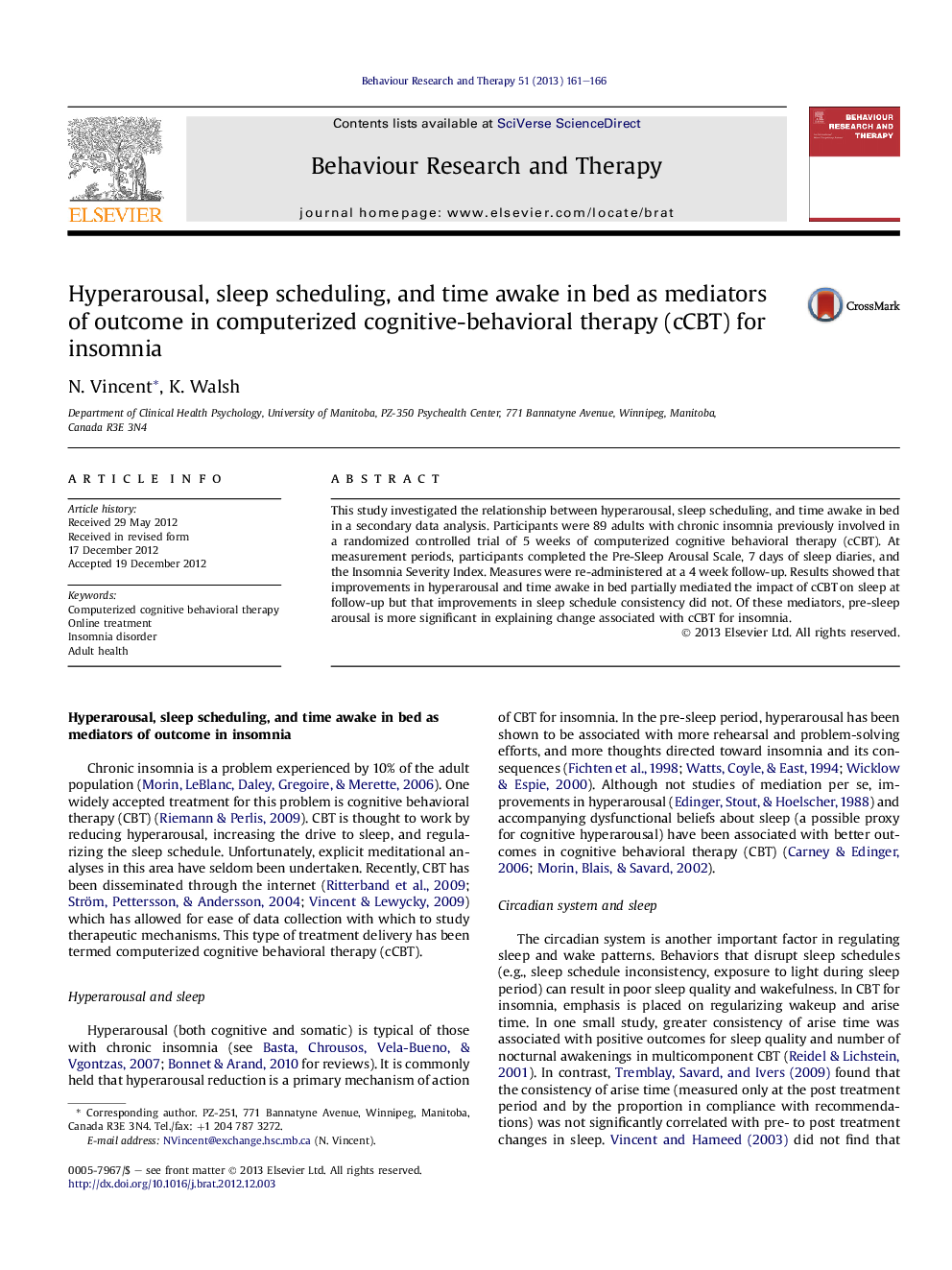| Article ID | Journal | Published Year | Pages | File Type |
|---|---|---|---|---|
| 901901 | Behaviour Research and Therapy | 2013 | 6 Pages |
This study investigated the relationship between hyperarousal, sleep scheduling, and time awake in bed in a secondary data analysis. Participants were 89 adults with chronic insomnia previously involved in a randomized controlled trial of 5 weeks of computerized cognitive behavioral therapy (cCBT). At measurement periods, participants completed the Pre-Sleep Arousal Scale, 7 days of sleep diaries, and the Insomnia Severity Index. Measures were re-administered at a 4 week follow-up. Results showed that improvements in hyperarousal and time awake in bed partially mediated the impact of cCBT on sleep at follow-up but that improvements in sleep schedule consistency did not. Of these mediators, pre-sleep arousal is more significant in explaining change associated with cCBT for insomnia.
► We evaluated mediators of outcome in cognitive behavioral therapy for insomnia. ► Reduction in hyperarousal and time awake in bed mediated outcomes. ► Sleep schedule consistency did not mediate outcomes. ► Hyperarousal was the strongest mediator of those examined.
